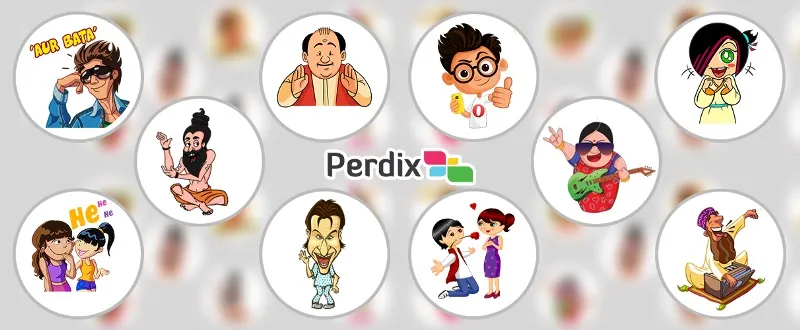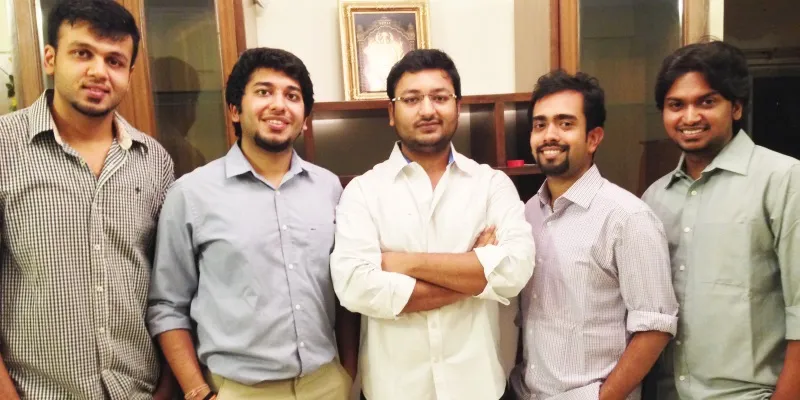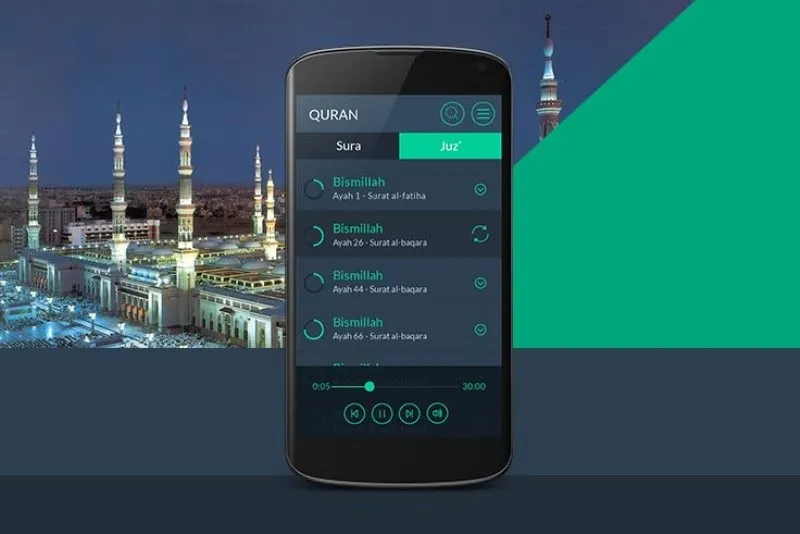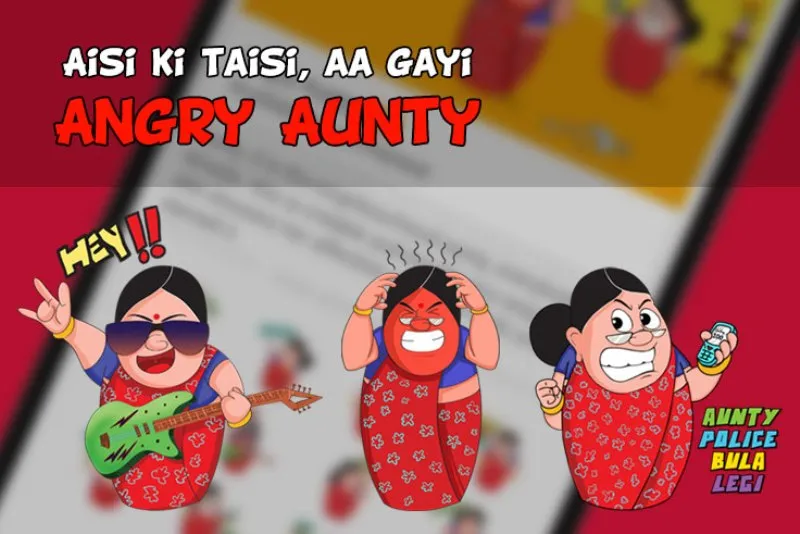This 2-year-old bootstrapped design startup has clients like WeChat, Line and Flipkart and is hitting 8-figure revenues
If you have ever used virtual stickers on messaging apps like WeChat, Nimbuzz and Line, there is a good chance that the sticker was designed by Perdix Business Solutions Pvt Ltd. This young bunch of designers, with a core team from IIT, Guwahati, started in 2012 with an initial capital of INR 3 lacs and is set to hit 8-figure revenues this financial year.
“Perdix is a design solutions firm with a focus on helping businesses grow by enabling them to attract consumers via functional and innovative design solutions. We believe that most businesses have no particular brand in mind when it comes to design consultation,” says Dushyant Palriwal, co-founder.
Perdix offers solutions for all design-related needs that a business may have, be it expanding its product portfolio, revamping its existing products or improving outreach towards a target audience via digital mediums like 3D products design, Mobile apps, Websites, Corporate branding, Digital Graphics, animations etc.

For instance, in the market for stickers for mobile-messaging, the team identified a lack of design firms that were making conversationally relevant stickers, especially in the Indian Context.
“Our creative team went on to create sticker packs which users took to liking because not only were the stickers good to look at but they also fit perfectly into everyday conversations and hence, were fun to use. We were thus able to carve a niche for ourselves in this market,” adds Dushyant.
The young Perdix team
The founding team members at Perdix, Dushyant Palriwal, Manish Sugandhi, Shubham Jain, Ranju Ravindran and Srijan Maulick are all graduates from IIT Guwahati and have majored in fields as diverse as Design, Civil Engineering and Electronics. The founding members were also a part of a travel startup in the North East, which was a stepping stone to establishing Perdix.

Two of the co-founders, Srijan and Dushyant are fellows of the prestigious Kairos Global Society. Another co-founder Manish is a Young Leadership Fellow at the Indian School of Business.
The team is comprised of nine designers, four people who look after technical development, another set of four members who look after business development and a two-member finance team.
The company's finance team includes Mr. Dilip Kejriwal and Mr. Saket Marodia who have been long-time senior mentors as well.
The genesis of design thinking in India
Design thinking has become mainstream in India. Srijan Maulick, co-founder weighs in on the encouraging trend.
“We think this has a lot to do with how the mindset of companies while approaching a problem has changed from being ‘bas karte hai’ (Let’s just build something) to ‘kuch accha karte hai’ (Let’s build something awesome). We have reached a stage where problems don’t just demand solutions. They demand solutions which are easy, effective and efficient. So when you are designing a product, you’re not just fulfilling a need, you’re creating an experience. You’d want to focus on as many use-cases as possible to ensure that the overall experience of using a product is good. When people have to choose between two or more products addressing the same requirement they go for the one that offers the best experience.”
This is where design thinking has proved to be critical. Companies like Flipkart and Freshdesk have taken the lead in this direction, and many more firms are following suit in India. Design thinking has become pivotal across domains as varied as healthcare, urban planning and education.
Working with global biggies
The team has designed stickers for some of the biggest messaging apps which include heavyweights like LINE and WeChat.
“Each one of them had different requirements. LINE requires static stickers whereas WeChat needs stickers which are animated. Every app has its set of design guidelines and design philosophies. We were able to adapt well, understand the strengths and impressions of each platform and design content,” explains Dushyant.
The team partnered with Nimbuzz to create virtual gifts and avatars for their flagship N-World that has seen a tremendous response from the market. They have also made stickers for them.
Apart from this, Perdix is working closely with a global organization named CallOfCulture and has recently launched an app called Qurani in collaboration with them. Some of the other organizations the team is going to work with in the near future include government organizations like SAROD, IHMCL , online commerce giant Jabong and messaging app Viber.
What does it take to deliver the best?
“We focus mainly on two things when dealing with a client – on understanding the client’s requirements in as detailed a manner as possible and on delivering a superb user-experience. We have observed that insufficient communication with clients in the early development stages is something most solution providers tend to overlook,” explains Srijan.
The team tackles this with extensive user research.
For instance, a project that requires thorough ethnographic research, like designing sticker graphics for users of a particular country, the team in the preliminary phases conducts an in-depth study about things like colors and tones that are appreciated by such users, emotions that such users tend to express, and even their cultural tastes.
Perdix has a multi-dimensional revenue model. For some of its projects the team receives an outright payment for the work. In other cases, a revenue-sharing model is agreed upon, wherein the team gets a cut of the revenue that is generated through their work.

Beyond designing stickers
Apart from creating digital graphics especially for mobile messaging applications, Perdix also creates interactive training material for companies for companies like Flipkart and Snapdeal. What Perdix does is it offers companies material to effectively communicate all the intricacies of their products with no loss of information, the availability of training material in multiple languages (at marginal costs), and substantial reductions in the costs for training. As these firms also require a lot of support in terms of design, the team has partnered with many of them in creating material for their branding, publicity and targeted outreach.
“What gives us a distinct advantage over our competitors is our domain knowledge coupled with good channels for end-user feedback that has helped us become pioneers in both these areas in India,” says Dushyant.
For instance, Perdix was the first to create an Indian sticker character Angry Aunty on WeChat, which enjoyed great popularity. The pack was such a hit that WeChat recently launched a 3D version. Some of the competitors in making stickers are Vaibhav Studios, and Afternoon Films.

The way forward
Perdix is working towards becoming a vital distribution channel for graphics for mobile applications. They are also looking at creating branded content and distributing such content to multiple platforms. Brand promotion through virtual content like stickers is also an interesting focus area.
"Recently, we partnered with LINE to create a sticker character for promoting the Opera Mini browser. This sticker set is live on LINE and this is the first time in India that a brand’s promotion has been carried out through stickers," says Srijan.
Why the bootstrap route?
“Right from the beginning, the focus was on bootstrapping and going forward by generating revenue. This has allowed us complete freedom of thought that lets us not just work towards generation of profit, but also in achieving our goal of a superior user-experience across all our products and services,” says Srijan.
With the same vision, the team is looking to expand aggressively into regions like the Middle East.
YourStory’s take on Perdix
Internet and specifically, Mobile Internet penetration has been increasing exponentially across the world. Messaging applications are surging ahead in terms of acquiring users, and huge catalysts for their growth are on-platform user engagement options like Virtual gifts, stickers, and games etc.
- The team is deep into mobile design-thinking due to their work with stickers for messaging apps, which in turn is helping them build apps which requires the same level of user understanding.
- Perdix has already diversified its portfolio with e-commerce focused interactive training material.
- This association with e-commerce organizations has helped the team tap into several design opportunities with the same firms, thereby reducing marketing budgets and sales cycle.
- The experience of having worked with industry leaders like Flipkart, Snapdeal, LINE, WeChat etc at such an early stage gives them the credibility to expand their client portfolio.







